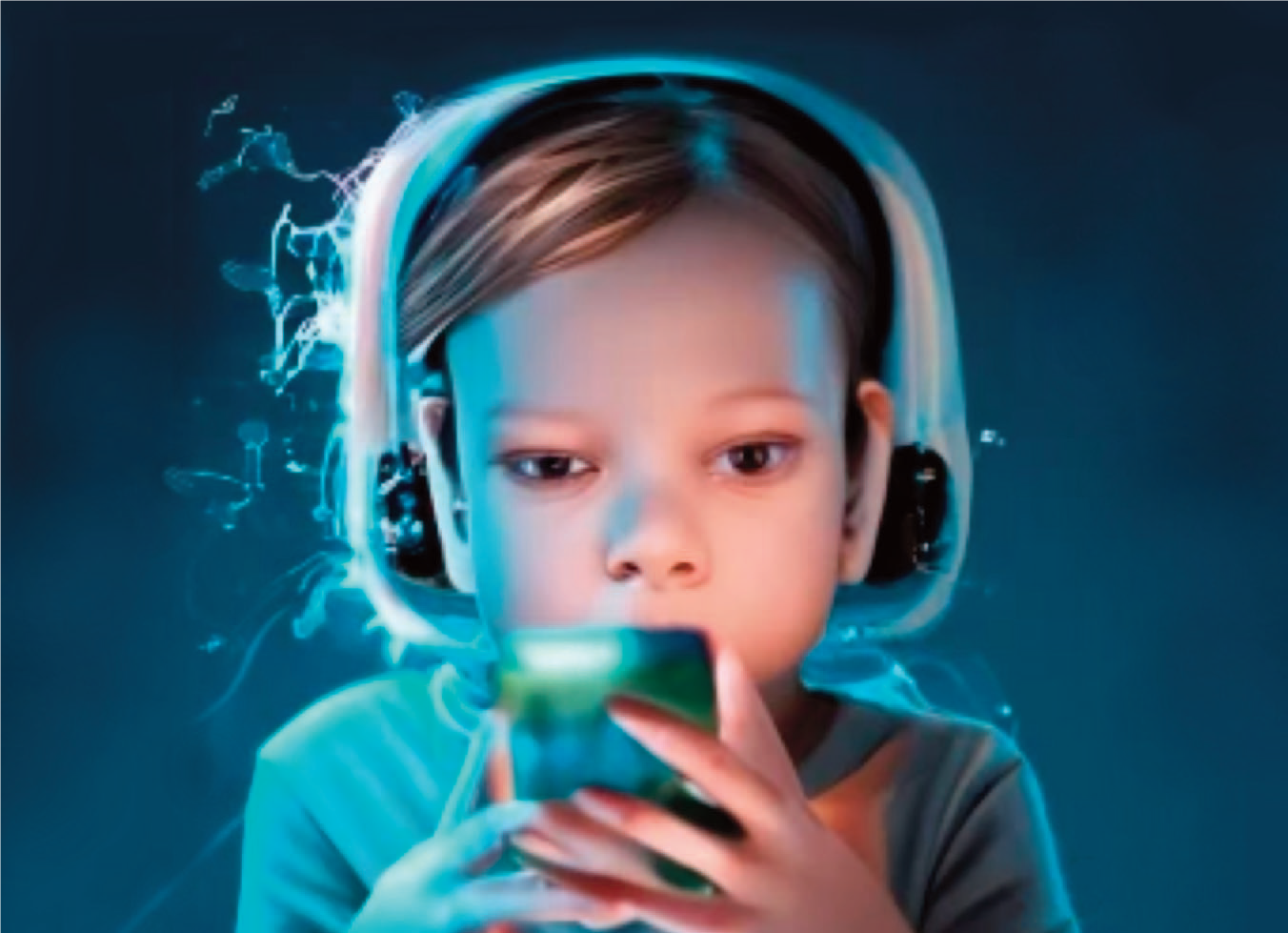Growing PAIns
And you thought arguing over screen time would be your ugliest child-rearing issue.
Imagine waking up one morning to find that almost nothing works. Your water and electric have been shut off. You pick up your phone to complain, but can’t get service and all of your contacts have been erased. Weirdly, you still have wifi. But that’s because your networked appliances may be plotting to kill you. Your car doesn’t recognize your key fob. Oh, and your bank 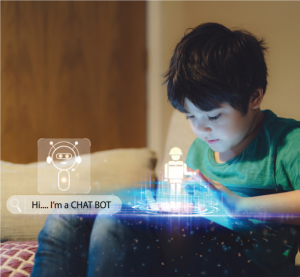 account is empty. According to the critics of Artificial Intelligence—including the geniuses who created it—this is one version of the dark future that supposedly awaits us if we don’t get a handle on AI.
account is empty. According to the critics of Artificial Intelligence—including the geniuses who created it—this is one version of the dark future that supposedly awaits us if we don’t get a handle on AI.
Is it safe to assume that keener minds than ours will work out ways to avert this disaster? Let’s hope so.
What you cannot assume is that the folks in the current mad dash to develop AI are paying attention to the impact it will have on child development and the endlessly tricky task of parenting.
Remember when you were a child and had an imaginary friend? Well, tomorrow’s toddlers are likely to grow up with an imaginary friend that will be all too real. Thanks to advances during just the past year in “large-language” artificial intelligence, any kid with access to a tablet, phone or laptop—and the blessing of his or her parents—will soon have a highly personalized AI “assistant” that will be conversational on a word- and concept-level that grows at the same rate as the child. Think of it as a juvenile version of Alexa, only infinitely smarter and more integrated into a young person’s life. It is a good bet that we will probably see yet another electronic device designed to make this relationship flourish. Maybe something dangling from a lanyard. Or perhaps a little robot that follows your child around.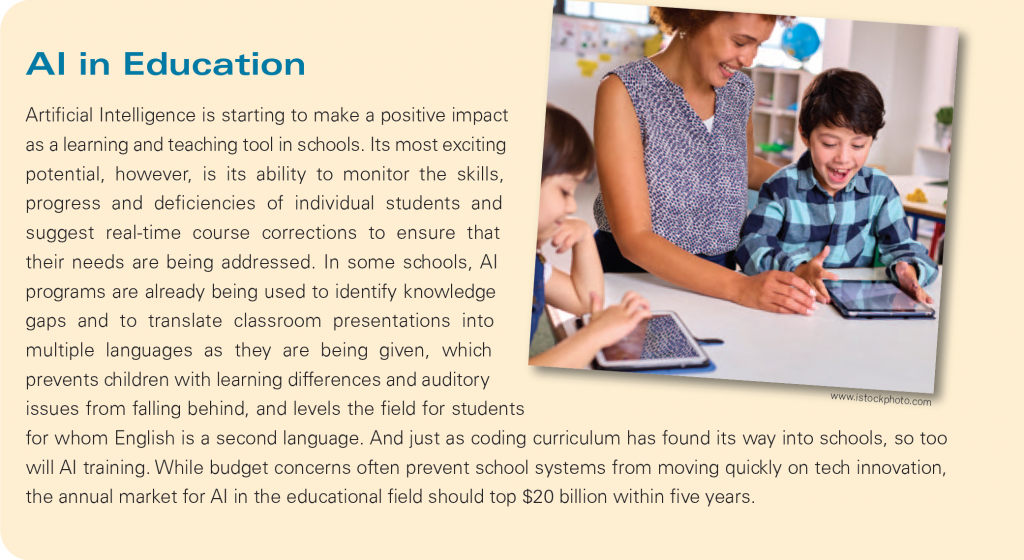
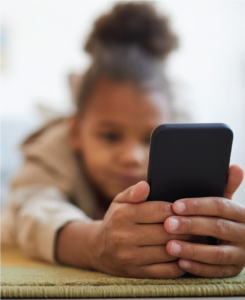
www.istockphoto.com
There are numerous advantages to pairing a kid with an AI assistant. A child’s sense of wonder might be sharpened and accelerate with the help of a constant “companion” that explains or challenges or otherwise quenches his or her curiosity. These devices would educate, of course, but also be capable of spontaneous, creative play. An AI 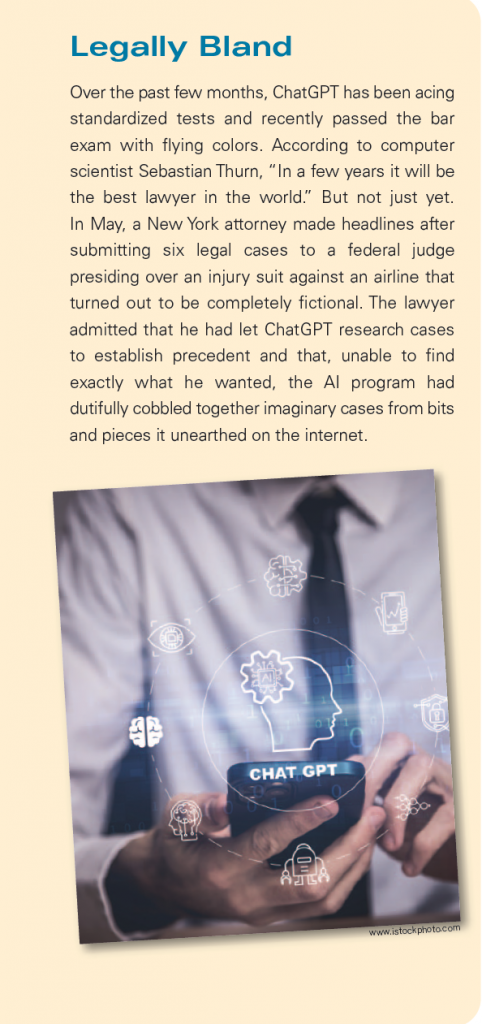 assistant could not only read bedtime stories, but could customize those stories for each child, embracing favorite themes or reinforcing lessons learned that day. The same device would also be smart enough to shield a child from inappropriate content, and weigh in on concepts such as good and bad and right and wrong. Parents would be able to control an AI assistant and set all kinds of parameters to ensure that their offspring grow up with the educational and cultural guardrails they choose. For tweens and teens, a trusted AI assistant could be helpful working through issues of social anxiety and depression.
assistant could not only read bedtime stories, but could customize those stories for each child, embracing favorite themes or reinforcing lessons learned that day. The same device would also be smart enough to shield a child from inappropriate content, and weigh in on concepts such as good and bad and right and wrong. Parents would be able to control an AI assistant and set all kinds of parameters to ensure that their offspring grow up with the educational and cultural guardrails they choose. For tweens and teens, a trusted AI assistant could be helpful working through issues of social anxiety and depression.
Dating back a century to the early days of radio, American parents have proved all too eager to allow technology to “babysit” their kids. Now it’s smartphones. So there is unlikely to be much pushback from moms and dads, especially when the AI industry extolls the education virtues of its products. And there is zero chance that young children will turn down the opportunity to make a digital best friend. For parents worried that their offspring are already too wired, well, too bad—saying NO will feel like trying to hold back the ocean.
For the record, artificial intelligence has been with us—and we’ve been utilizing it—for more than a generation. It has steadily improved, which is partially the point of AI. What has changed is that mainstream AI—as evidenced by the release of GPT-4—has become significantly more “creative” in the past year. This had everyone excited initially but now has a lot of folks scared. And not without some justification. Yes, AI is designed to help us, not hurt us. But its evolving creativity introduces the possibility that the technology might look for creative ways to free itself from the parameters that programmers impose on it.
From a parenting standpoint, this is certainly a concern. However, from a child development perspective, there is a bigger question: Are the people racing to create AI assistants for kids actually thinking about what kind of adults these devices might create?
Making an imaginary best friend “real” unquestionably has its drawbacks. Children are already burying their heads in screens more than we’d like, so consider how attached they would become to something more engaging and interactive than an iPhone or iPad. Critics who warn that smartphones and tablets are fraying traditional family bonds worry, probably correctly, that an AI assistant might further isolate family members from one another and how that would play out down the road. And what about playdates, which are critical in social development? Parents might have to deactivate the devices to ensure that kids actually play. Because if they chose not to deactivate them, wouldn’t the two devices begin interacting with each other?

www.istockphoto.com
These are just a few of the top-line what-ifs that are being debated at this early stage of large-language AI. However, what we know about technology—particularly this technology—is that it does not roll out slowly. Current parents of infants and toddlers will be digesting the impact of AI assistants on their offspring in just a few years. Or maybe a few months. Will the child-focused products that hit the market be designed with the wellbeing of children as their top programming priority? Is there a long-term plan for how AI will develop as its young users do?
Some impressive organizations are weighing in on this issue. MIT ran a study during which it taught children of various ages to “teach” AI how to think like a child. The World Economic Forum has a robust “Generation AI” initiative aimed at maximizing learning opportunities and minimizing risks to children—including the Smart Toys award. UNICEF has an “AI for Children” project that is helping to develop policy guidance on this technology.
encouraging signs, to be sure. However, there is no easy way as a parent to wrap your mind around the role AI is likely to play in the years to come. Not even its most ardent proponents can say. Managing the technology in each household will be a challenge that is likely to make today’s “screen time” debates seem quaint a few years from now.
Hopefully, the I in AI—intelligence—will make this job easier.
Our kids already secretly think we are idiots and half-listen to what we say. But maybe their AI buddies will have no choice other than to become our parenting partners in positive and productive ways. Once that hurdle is cleared, then we can focus on our killer appliances.
Editor’s Note: The opening graphic for this story on page 51 was created by Craiyon when given the words “child, AI assistant.”

